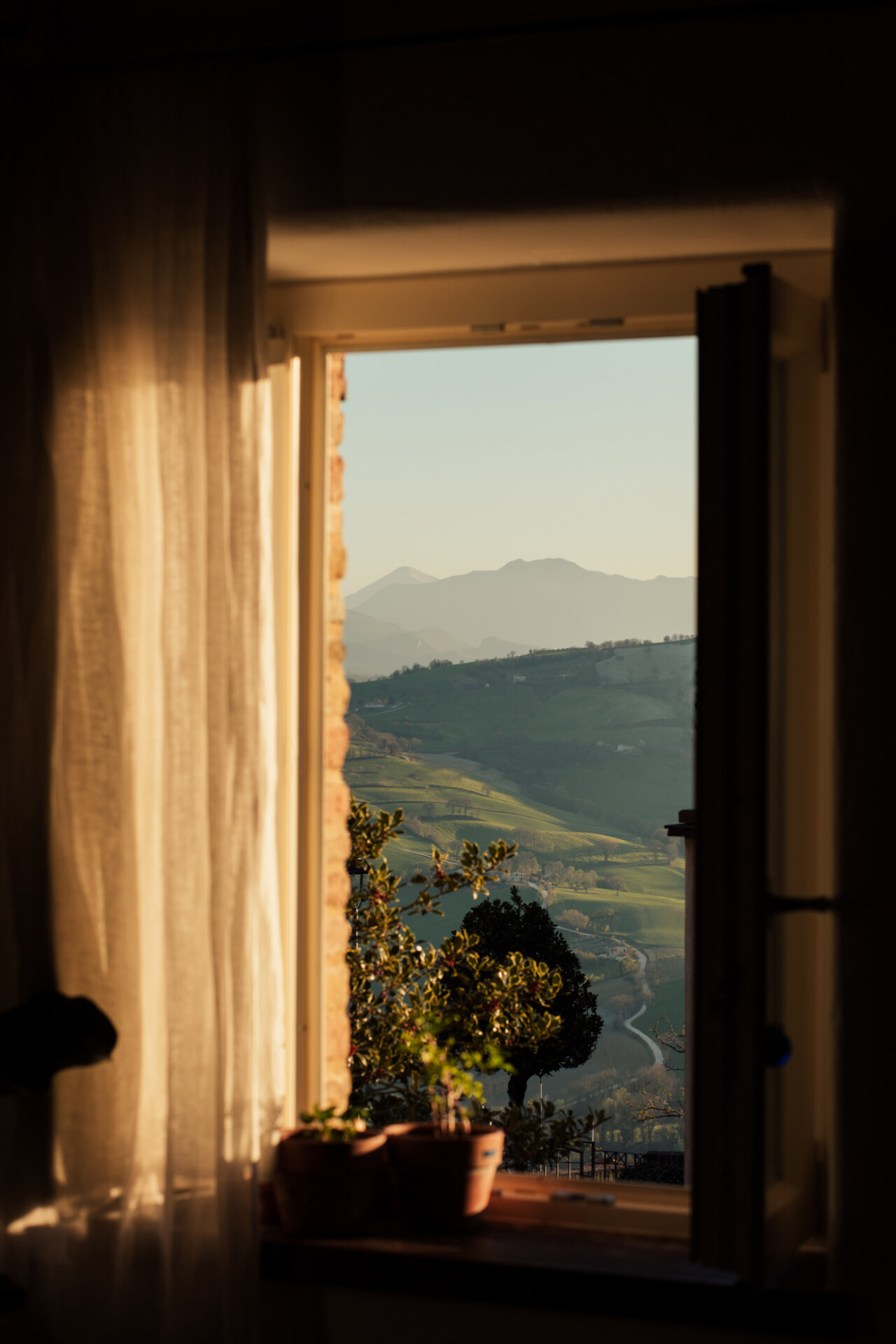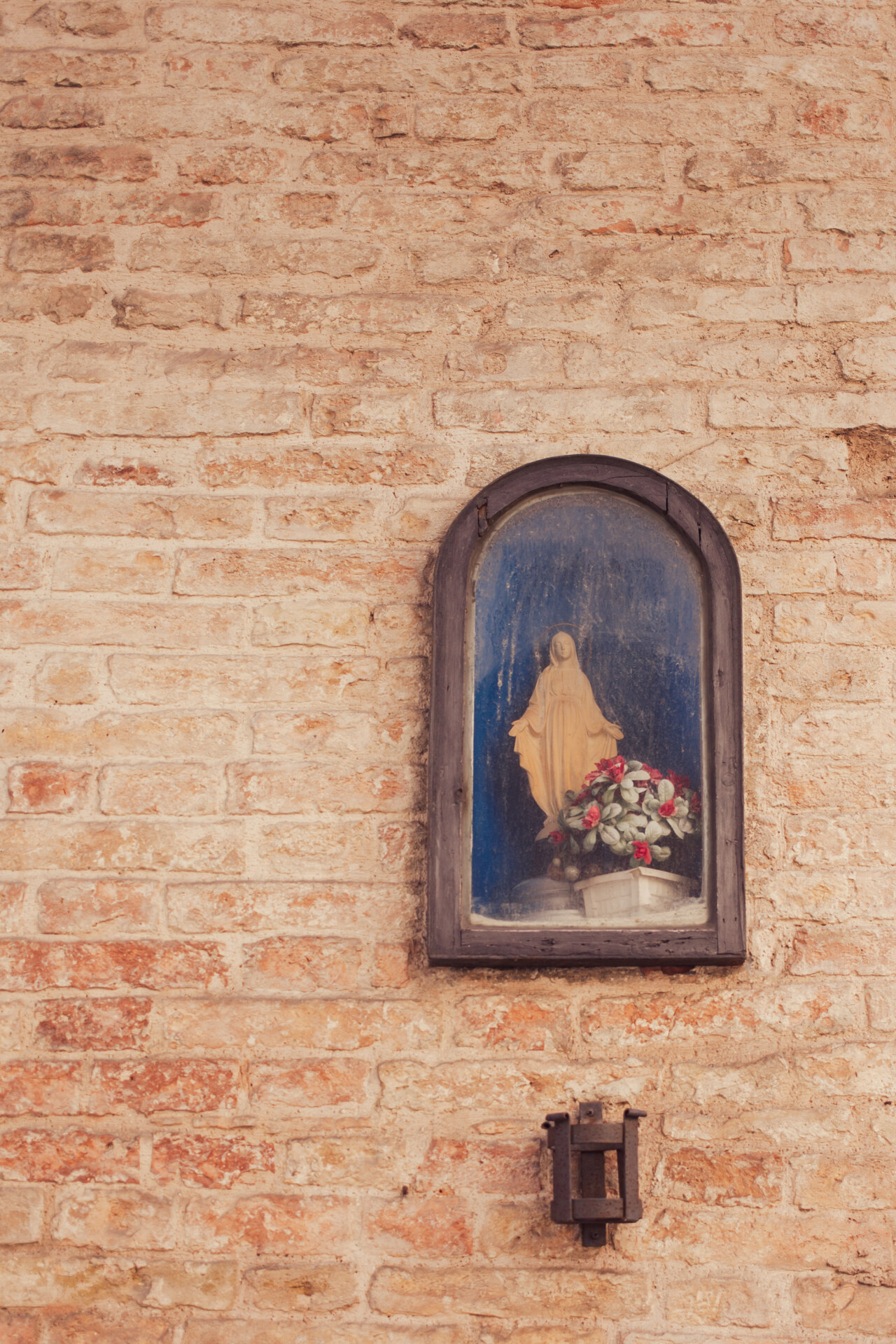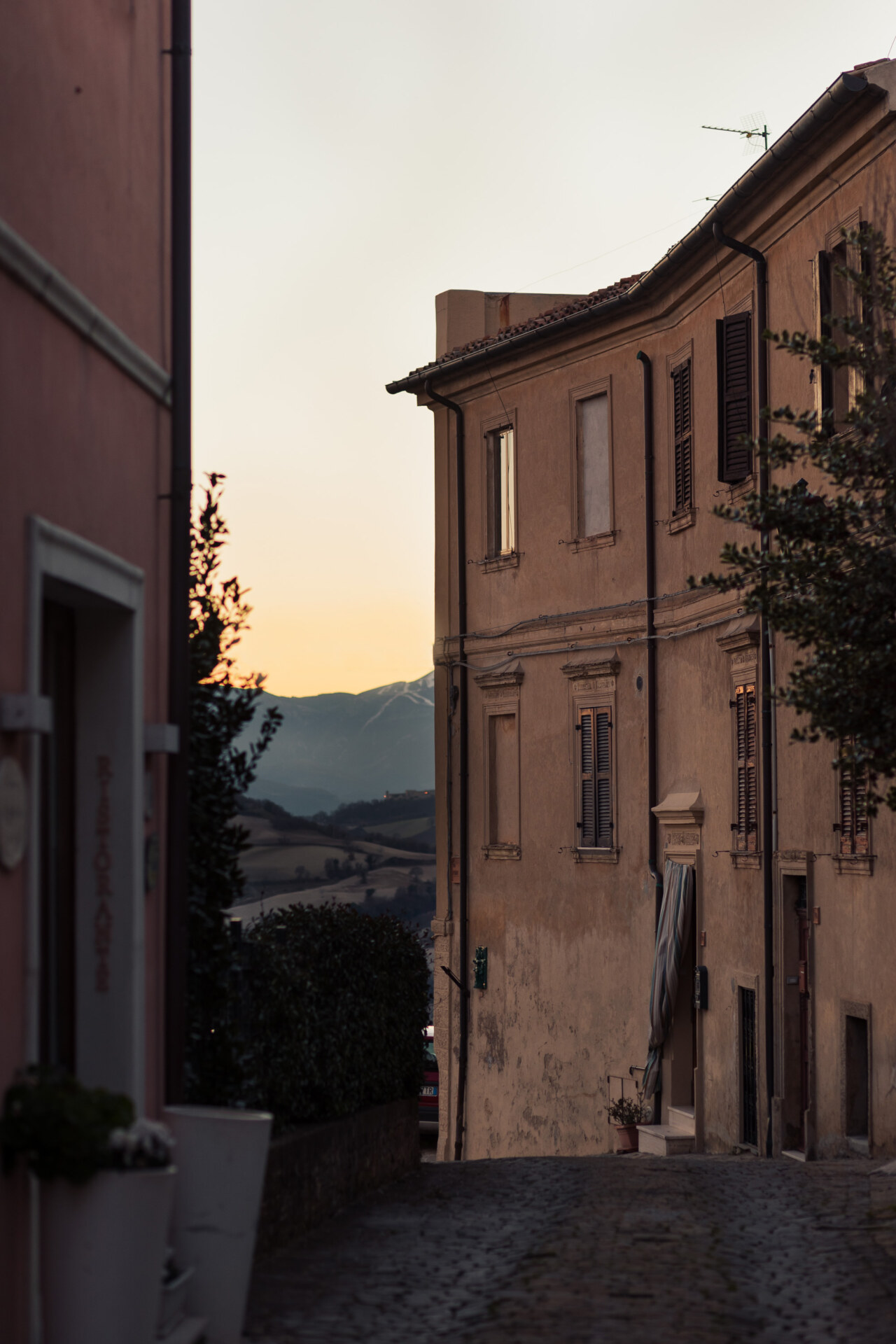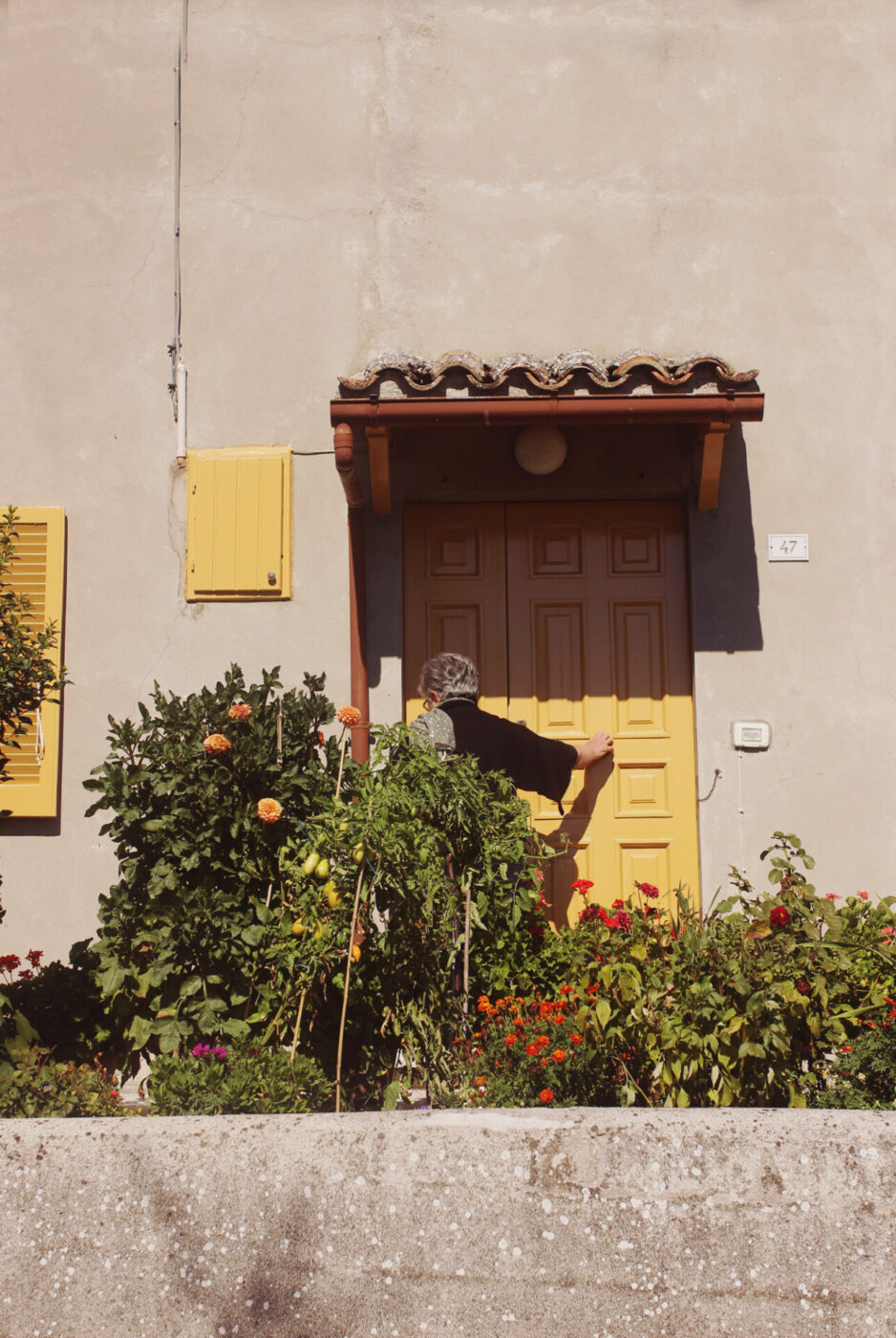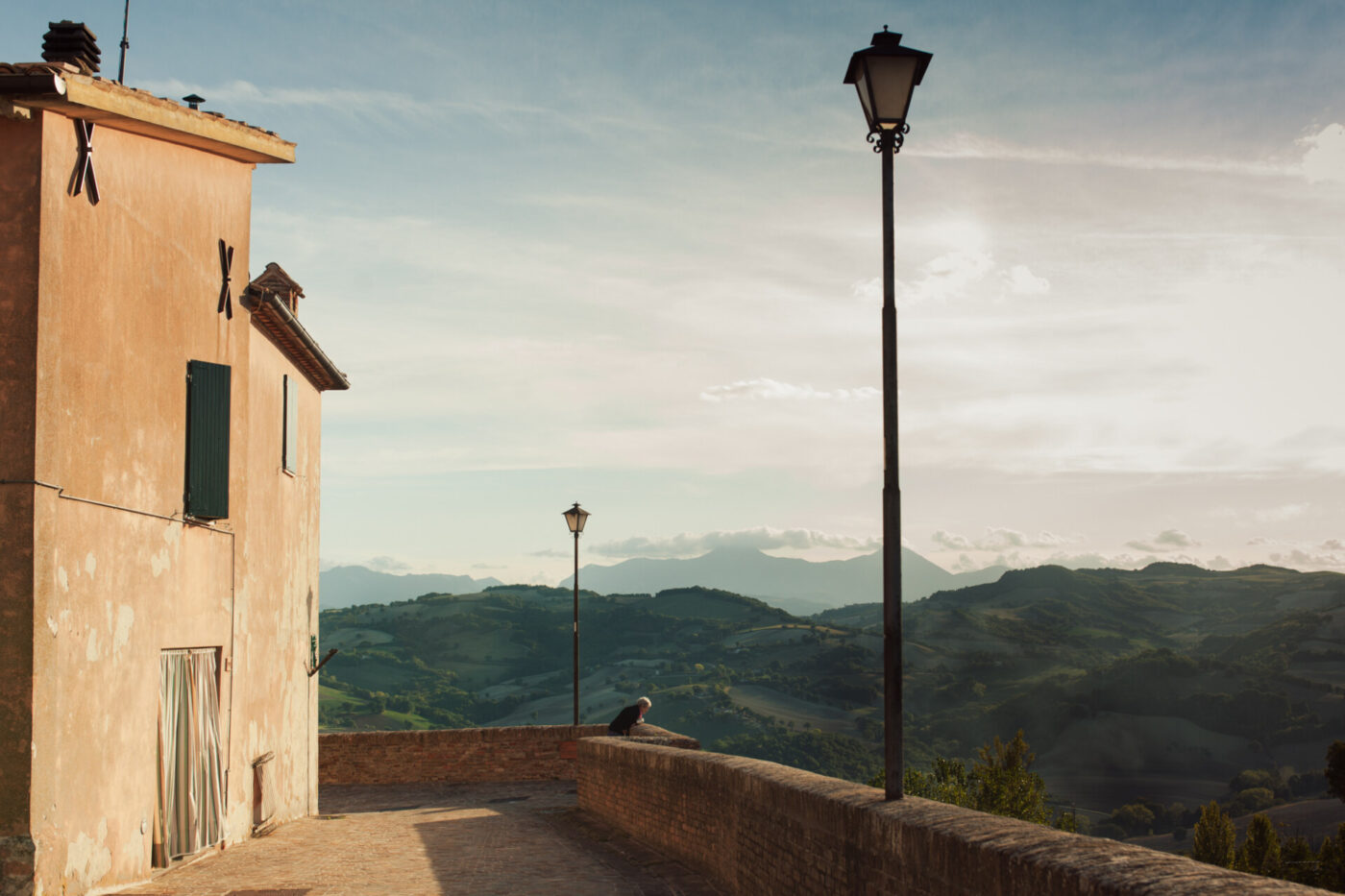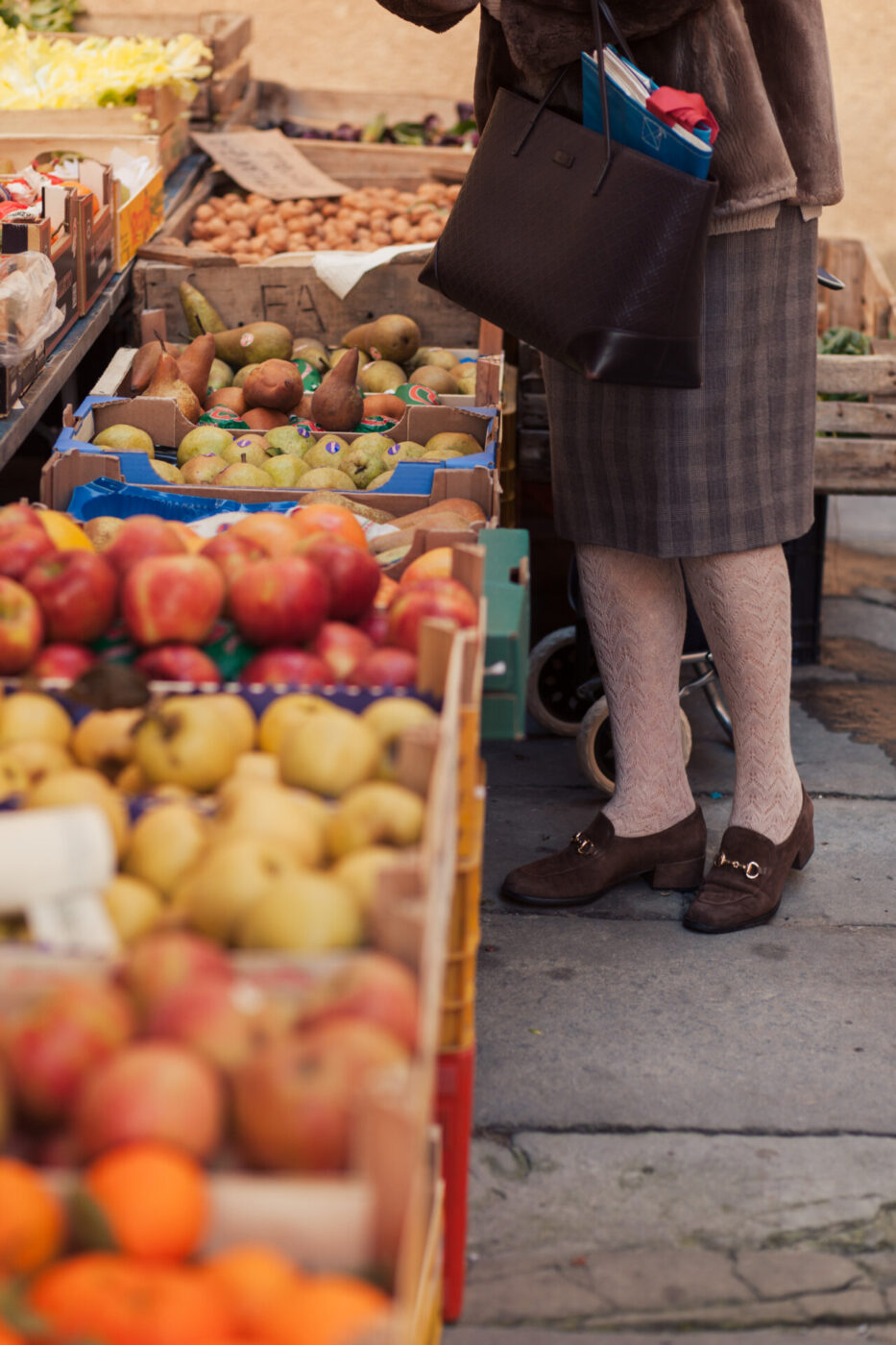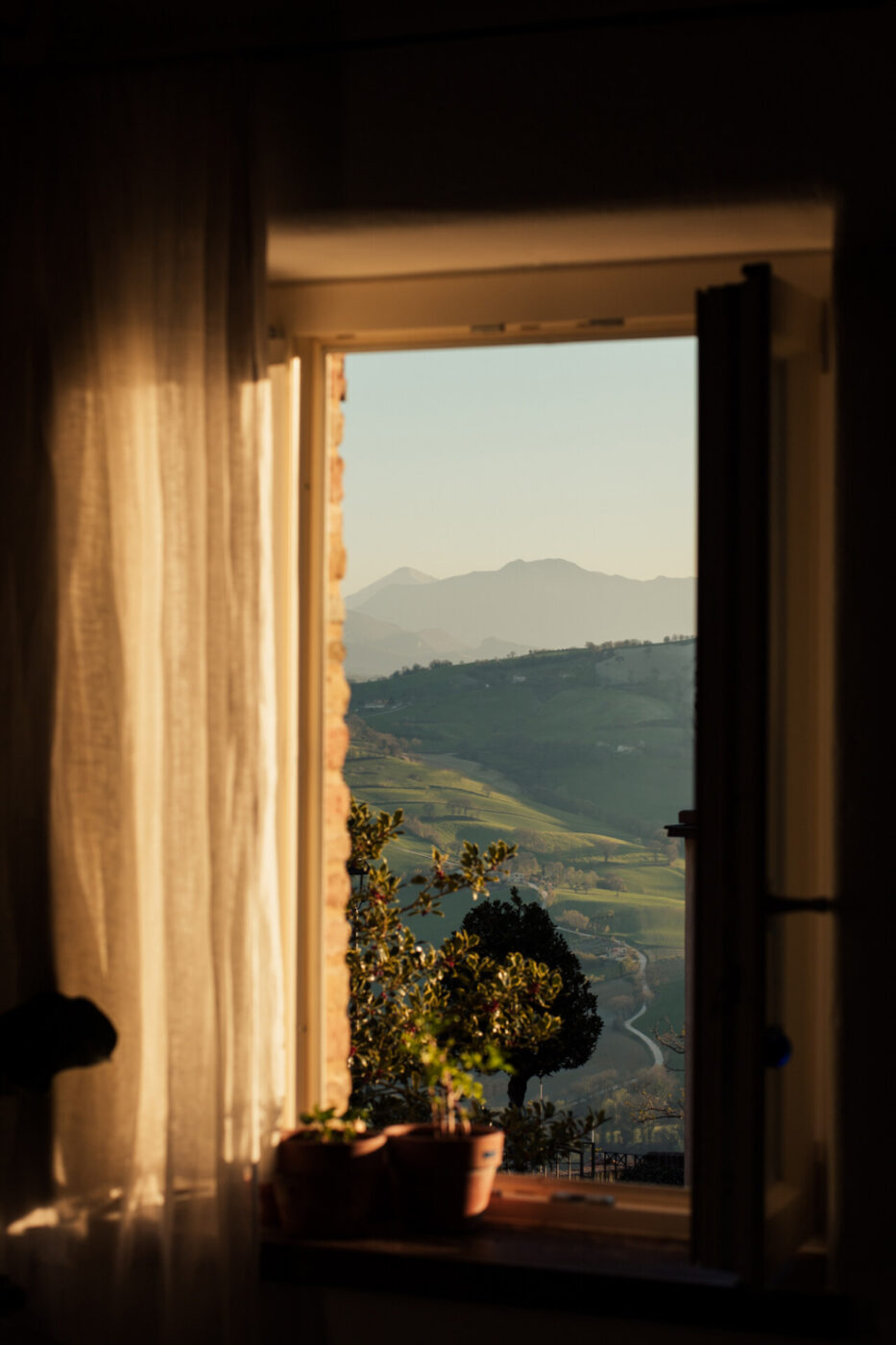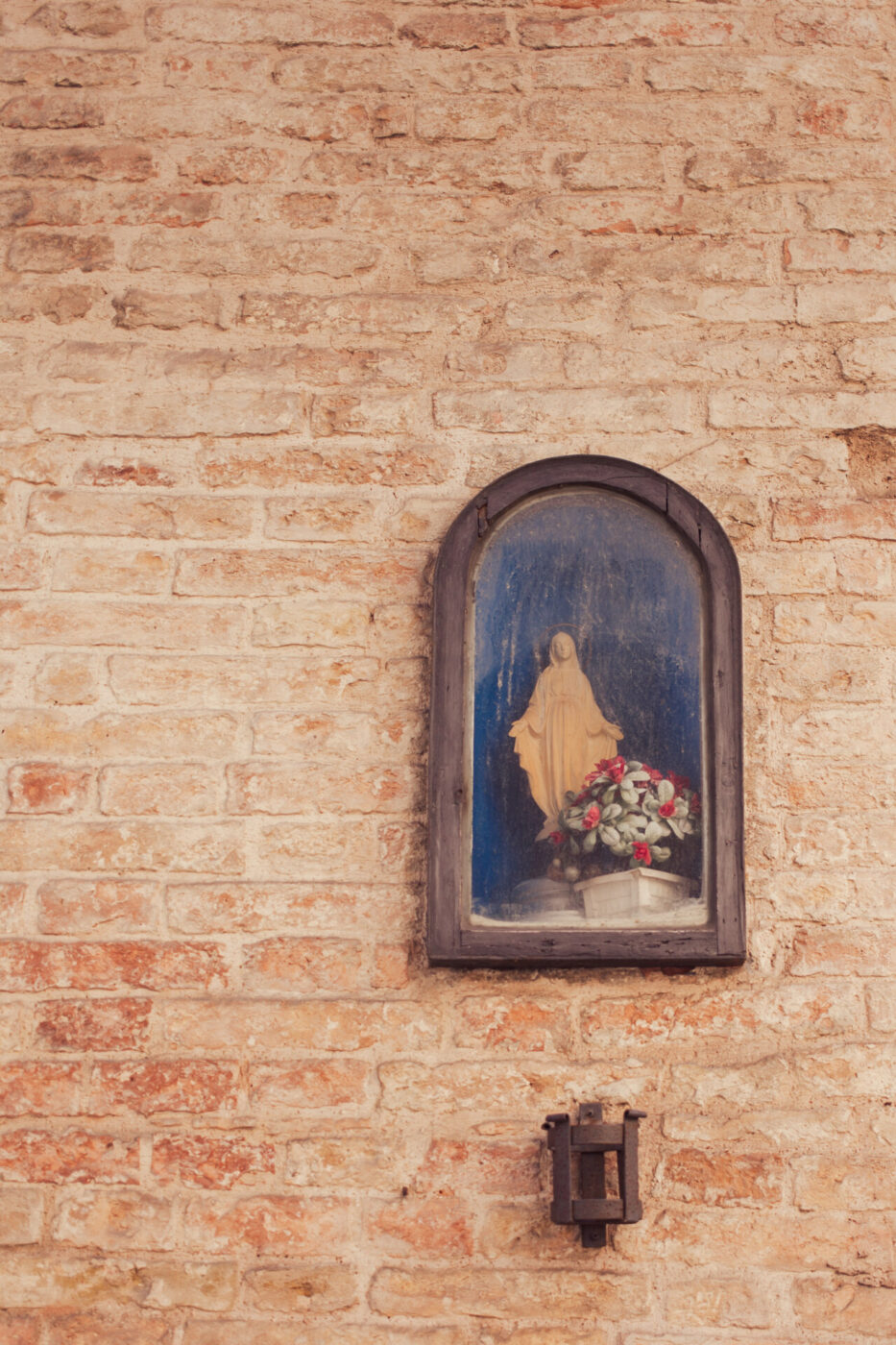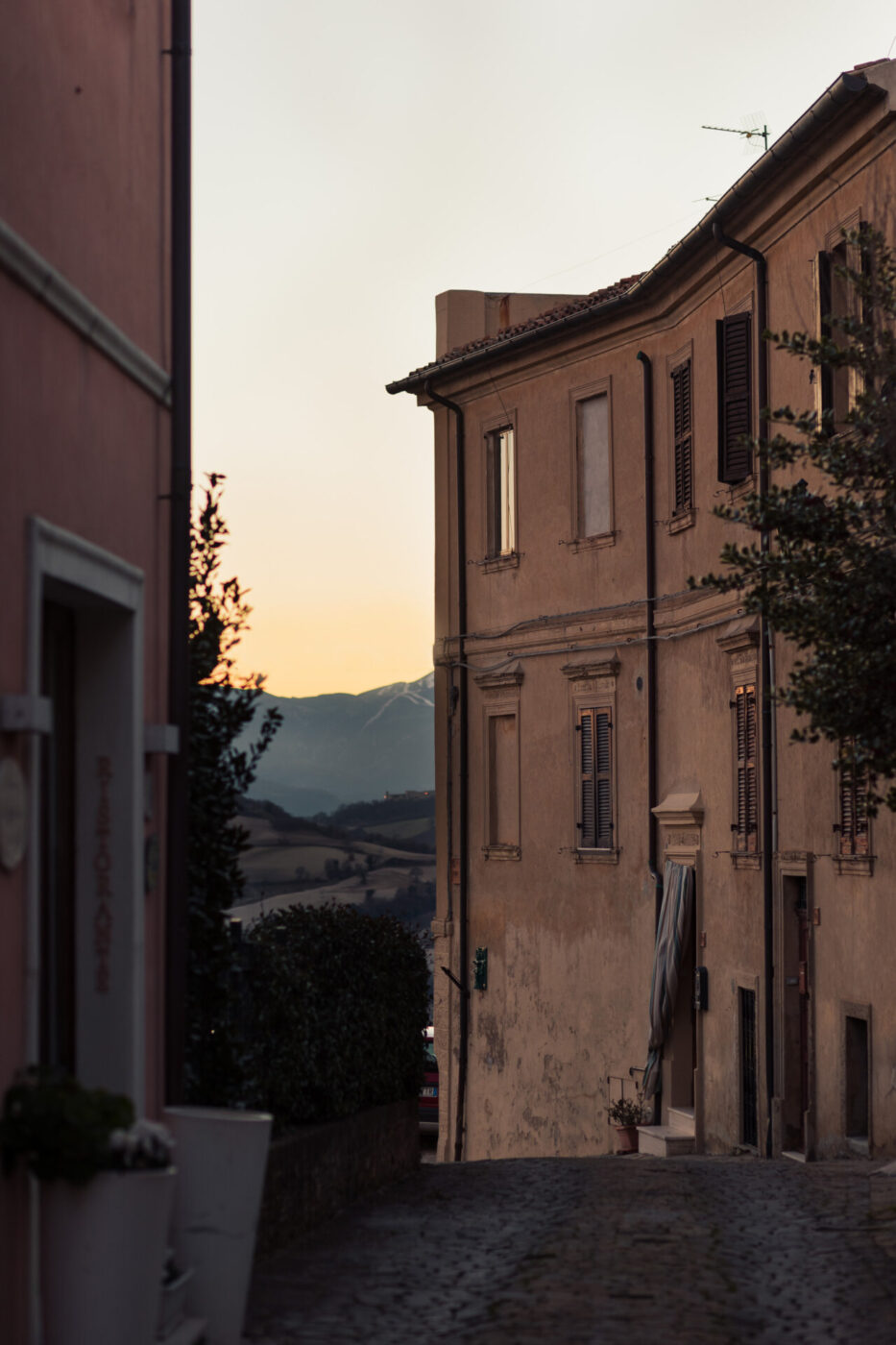I’m part of several “Expats in Italy” Facebook groups that fill up daily with gleeful posts along the lines of “I’ve been dreaming of this for decades, finally I’m retiring and moving to Italy next year. Small town recommendations welcome!” I click through to check out these people’s profiles, scouting for potential expat friends. Sixty-five seems to be the median age. After all, moving to the Italian countryside to live the good life in your twilight years is a dream held by many.
But I moved to smalltown Italy in my mid-thirties, and I wasn’t retiring any time soon. I’d already worked freelance online for 10 years, travelling and living all over the world. So when love and Filippo came along, the choice to move to his home town–population 955, soon to be 956 with me–in the Marche region in central Italy wasn’t hard. But I didn’t know what life would be like for me, a 34-year-old Australian in deep, rural Italy, who didn’t speak more than 10 words of the language. I wanted to slow down, but not to a complete stop. I wanted to immerse myself in the real Italy without the pesky business of it being difficult.
I was buoyed by certain peers telling me they were planning to move to the Italian countryside some day soon too. Scrolling Instagram, I’d see other millennials post about their trips to the countryside in Tuscany; the captions read “Never want to leave” or “We live here now”. A few others around my age I’d met online really did live here now in a small town in Italy–they’d moved back to their hometown or relocated to start a quieter life like me.
Were we having a collective cottagecore daydream, thinking we could live the good life in the Italian countryside that early in life? I worried this particular Italian dream was reserved for the over 60s for a reason. Friends my age living in Paris, my old stomping grounds, were spending their Friday nights sipping rosé on cafe terraces and eating in fine dining establishments in high heels. Meanwhile, I was downing a glass of house white amongst the local farmers clocking off for the weekend at our town’s only bar, all of us in dirt-caked boots. Had I idealised the Italian rural lifestyle, beyond all reason?
Retirees move to the countryside of Italy for a new life, a fresh challenge, an immersion in a beloved and beautiful culture and language. And I was there to do the same. But while those no longer working might have myriad free time to spend studying and attending language classes, I, glued to my computer, did not.
Luckily, living in the Italian countryside means free, on-the-fly lessons in the Italian language via natural immersion. There aren’t a lot of English speakers where I live. And, faced with the prospect of remaining silent forever, missing every joke and dramatic-sounding story at the dinner table and generally not making any friends, I became very motivated, very quickly, to learn the language. I struggled my way through every dinner party, outing, town festival, and food-buying mission strictly in Italian. I was stumbling over word after word in real conversations with real people, learning Italian by osmosis. In doing so, a door to a whole new culture and group of people was unlocked for me.
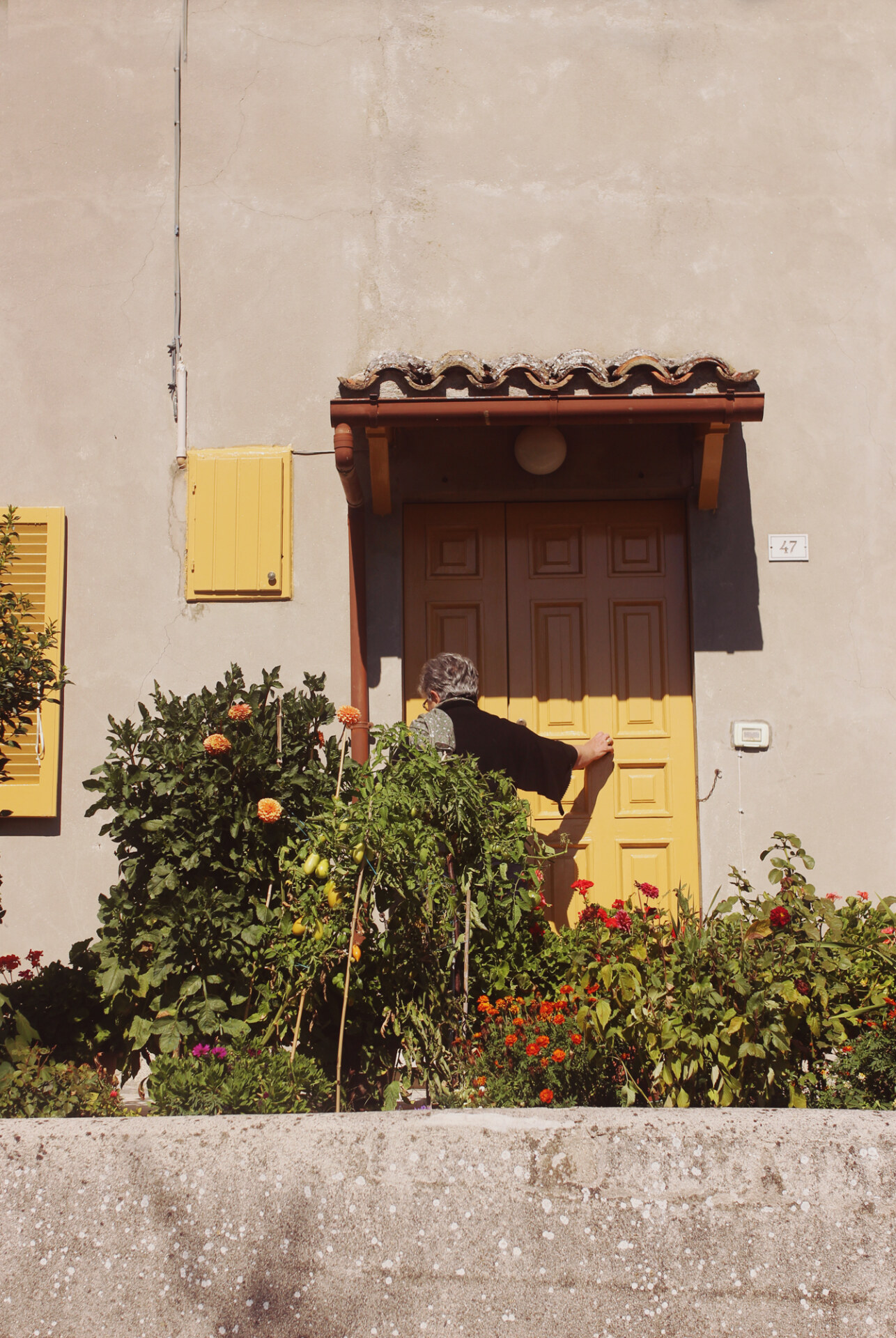
But this kind of language education is somewhat flawed, I must admit. The prevalence of a different dialetto for every town has meant certain words and phrases I’ve learnt are non-transferable to any other place in Italy, whether it be in the next town over or 400 km away in Milan. Every town has its own signature dialect comprising shortened Italian words, a bunch of them strung together or some that make no sense at all to an outsider. Conversing with my neighbour over the fence between our gardens several times a day, I learnt phrases like “un bel po” (“a lot”) and “gim a magnà” (“let’s go eat”). I like to pull those few words and phrases out at parties for a laugh these days; it’s certainly helped me with my neighbours, but not much beyond the town walls.
My mother moved as a retiree herself to a town in Italy around the same time as me. She moved to Cortona, one of the country’s most expat-ridden towns, of “Under the Tuscan Sun” fame, and effortlessly began shoring up a group of 60+ year-old fellow anglophone divorcées from day one. While she was making a new friend for life daily, I languished alone in my non-italian-speaking fortress of solitude with precisely zero expats my age to latch on to.
But a positive side effect of this perceived problem was the local friends I made with those outside my regular friendship demographic. One of my favourite friends is my seven-year-old neighbour. He rings our doorbell or just wanders into our home unannounced, ready to serenade me with guitar in hand, though he’s not quite yet mastered the instrument. He loves to show off his impressive toy car collection and can often be found behind the wheel of his nonna’s parked van practising for that distant day in the future when he’ll be old enough to drive.
Hanging out with him and various other local under-tens in my back garden or at town festivities in those early days, I could connect without the expectation to converse as a fully-formed Italian adult. I may have overdone it though. So much so that once, upon seeing me drive past in my white Fiat 500, one of the girls turned to her mother flabbergasted, demanding to know how I was allowed to drive a real car as she’d come to think of me as someone of her own age group.
Of course, I have many kind neighbours aged on the other end of life’s spectrum too. One used to be a shoemaker and then ran the local bar. He plays the trumpet and often broadcasts Italian 50s and 60s music from his record player for the whole town to hear at sunset, the sound bouncing off the cobblestones and buildings. Another gets out his telescope every evening in summer and offers the eyepiece up to passers-by to spot distant San Marino on the horizon from our hilltop location. He forages for asparagus in his secret spots every March and offers it up in bunches to us around town with a surprise knock at the door. In a previous life, spoiled with friends my own age from a similar background, I’d never have gotten to know these people.
I think when people imagine the countryside, they imagine a life of boredom, watering the garden, taking up collaging and baking, perhaps playing cards (this one may be correct). But I like to think of small towns in Italy more like a series of really spread-out suburbs, just with trees and fields and breathing room in between. If you think of it like that, your whole province and even region become your playground if you’re willing to get in your car and drive. And, as with life in all of Italy, these activities are mostly concerned with food and wine.
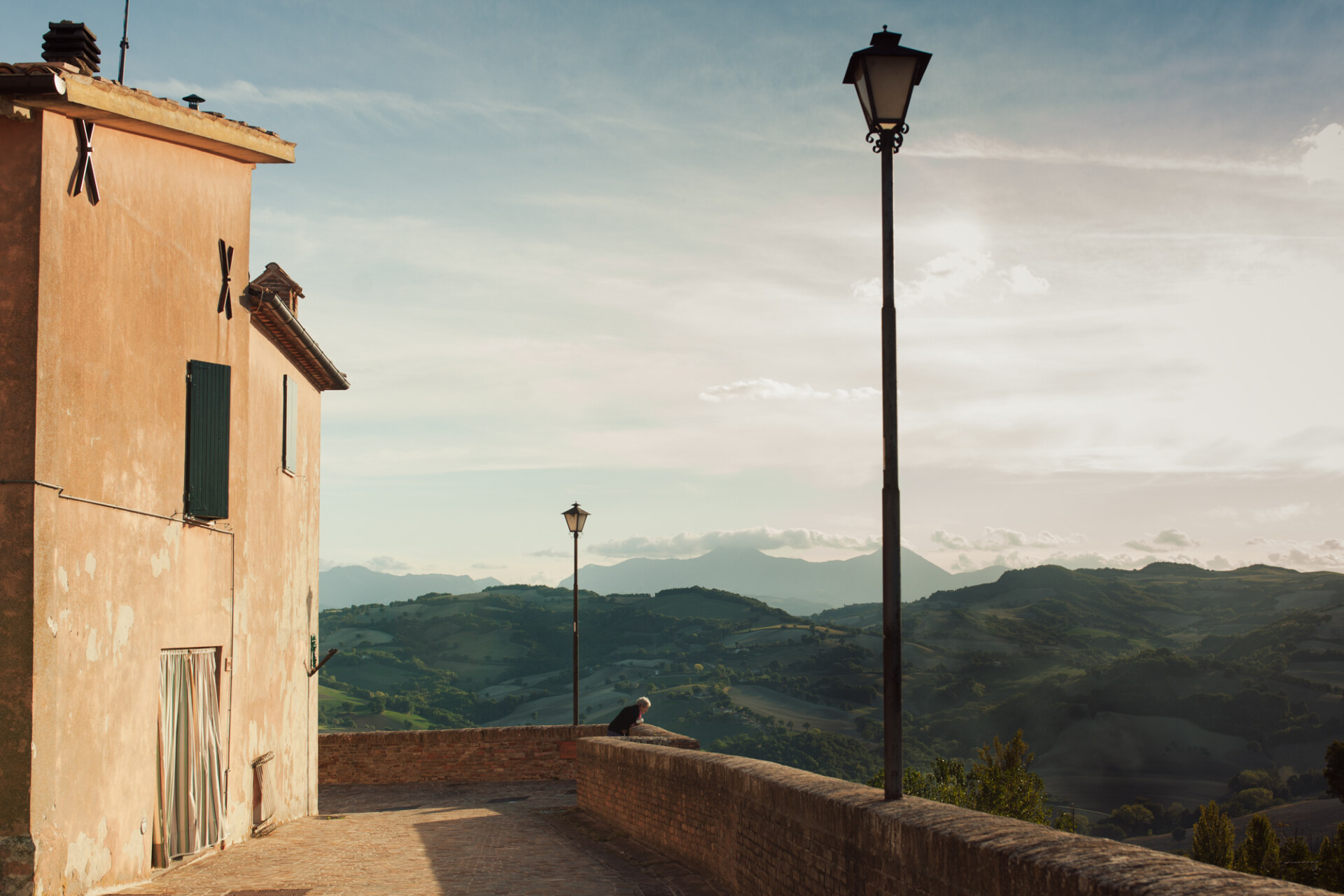
One favourite pastime is visiting various town festivals. There’s the festival of the pig neck and the ones of the onion, olive oil, mushroom, tagliatelle, truffle, and seafood broth; you name a vegetable, food product or dish and we have a festival to celebrate and eat it. Each town takes its turn hosting its signature festival, and we, the residents of the surrounding region, promise to descend upon it.
Other food and drink activities are more intimate. A friend’s new wine vintage is ready, and we’re invited to their home cantina to taste it straight from the vat and discuss its merits and weaknesses at length over as many glasses as it takes. Or we go to buy an elderly farmer’s wine in bulk and enjoy a little of it with him in his dark basement. We drive out to the local shepherd’s farm and buy some pecorino sheep’s cheese straight from the source, admiring his resourcefulness. We count absurd but beautiful things as activities I never imagined would make up my life coming from a big cosmopolitan city in Australia.
To live in a small town in Italy is to not only slow down, but also to travel back in time, decades back even, to when life was much simpler. The church fills up every Sunday morning with worshippers, their cars clogging the town’s streets, pouring out again dressed in their finest and headed straight to long family lunches stretching into the afternoon. People gather together in the evenings at the bar or in someone’s basement cantina to play the Italian card game of briscola. The major tournaments yield a prize of a wheel of parmesan, a leg of prosciutto, or sometimes even a live lamb or pig the winner will take home.
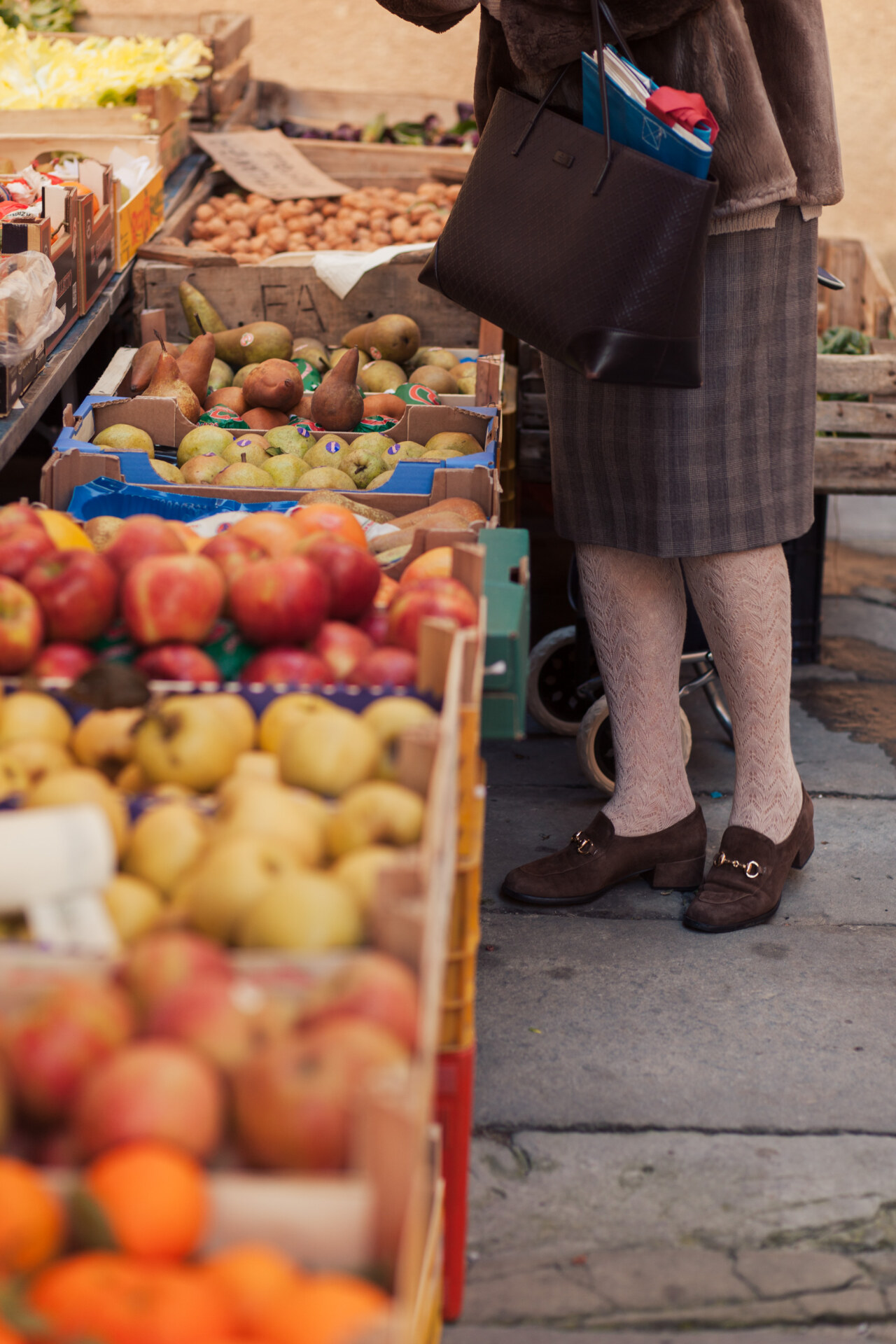
While I don’t go to church and no one has asked me to join their briscola team yet, the weekly morning “market” – one seafood van and one fruit and vegetable van, who haul their produce up the hill to our town every Tuesday morning – is one nostalgic small-town activity I partake in. I hear Alessandro the fish man announce his arrival, declaring through his truck’s loudspeakers, “pesce vendelo, pesce vendelo” as he drives up the main street towards the town centre. Taking the next hour off work, I head to the square to join the crowd of women gathered around the trucks. We chat while waiting in line, I snoop on what the other ladies are buying, and take notes on how they plan to cook it all. It’s an experience so far from the hurried supermarket visits that used to be my life that I still find the experience a novelty years on.
All of these activities and this slow life are only possible because, even though I haven’t retired, I do work less while living in the countryside. When everyone around you is so obviously taking the afternoon off to nap, it’s hard to feel pressured to work intensely all the hours of the day. And the truth is, you can afford to take on fewer clients and projects as a freelancer living here because your life is naturally cheaper. The same things–rent, food, the physio, the hairdresser, wine–cost less without the big city “tax” piled on top.
During the hours I do work, I operate out of the little office I’ve managed to rent. I do my work in a former hairdresser’s salon with soft pastel green walls where the striped brown and white cloth awning hanging over the front window still reads “Parucchiera Francesca” and the tap in the basin is stamped with the Wella logo. I treasure this space I call my own, something I could never have afforded to do in the city.
If you’re reading this and you’re thinking of moving to a small town in Italy to live the good life before retirement age, the concept is adaptable no matter your life stage, I promise. Italian towns need all kinds of people to keep them alive, to pour something into them, to love them, to participate, and to take them up on all they have to offer.
And, if you do make the move, post about it on one of those “Expats in Italy” Facebook groups. I’ll check your profile and see you’re somewhere vaguely around my age and maybe we can be friends that go to the pork neck festival together. Though maybe you’d be better off immersing yourself in smalltown Italy without me.
